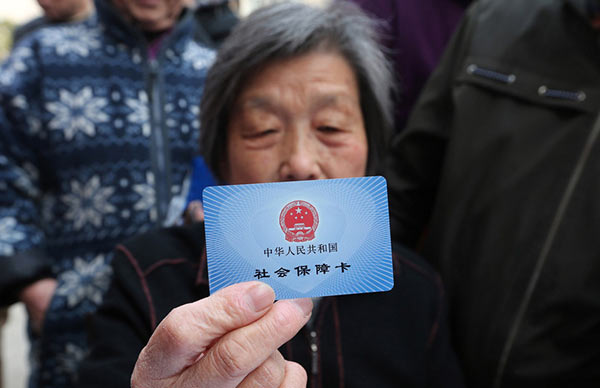Taming an overheated market
Wang Yong, an analyst with China Securities, thinks that government determination to expand property tax on a trial basis was the reason for plunging property-related stock prices.
Property-related stocks have witnessed robust growth in the A-share market since October 2012. However, immediately after Feb 22, when the new policies were unveiled by the State Council, those stocks nose-dived and some of them fell by 40 percent. "The new policies brought panic to investors," said Wang.
Jia Kang, director of the Research Institute for Fiscal Science under the Ministry of Finance, doubted the effect of property tax in curbing housing prices.
Expanding the scope of experimental property tax has far-reaching significance in controlling the market and in deepening tax reforms. But housing price hikes are caused by many factors. Property tax is only one of many measures to regulate the market and won't lead to immediate housing price falls, said Jia.
Property taxes in Shanghai and Chongqing were introduced on a trial basis on Jan 28, 2011, in a bid to help cool the real estate market.
Nearly 20,000 units of residential homes were hit with property tax in Shanghai in 2011 and the number jumped to 37,000 in 2012, bringing in 2.46 trillion yuan ($395.1 billion) in tax revenues last year, according to the city's finance and taxation authorities.
However, the implementation of a property tax failed to cool the housing market in Shanghai. In January 2013, new commercial housing prices in the city rose 1.5 percent from the previous year and 3.4 percent from the same period in 2010.
Property tax trials for now aim at regulating the market instead of raising revenue. Judging from trials in Shanghai and Chongqing, property tax can only be expanded gradually, said Jia.
Restricting home purchases for investment purposes is a long-term task for China's real-estate controls, he said.
Future trend
Over 20 cities, including Beijing and Shenzhen, said they would formulate housing price control targets as soon as possible, in response to the central government's latest call.
Related ministries and departments are mulling over regulations as well. The Ministry of Land and Resources, a major participant in housing market controls, made specific plans for land supplies on the day that the five policies were unveiled.
The Ministry of Land and Resources will maintain a steady land supply. First, it will think ahead to ensure sufficient land supply when formulating this year's residential housing land supply plan. Second, it will accelerate releasing land inventories for sale in the market as soon as possible. Third, it will intensify efforts in utilizing idle land. Finally, different measures should be rolled out to balance land supply, according to Vice Minister Hu.
Yi Xianrong, a research fellow at CASS's Institute of Finance and Banking, said the housing market should be dominated by a need for accommodations instead of investment purposes. This is what the Chinese government has continuously emphasized when introducing tightening measures to crack down on speculative home purchases.
"The key lies in how to shift demand to accommodation needs instead of investment. The government still has policy reserves that could be used to achieve that aim, such as taxation and mortgage policies," said Yi.
- Stricter measures to cool property market
- Housing still on unsustainable path
- Real estate recovery gathering steam
- More Chinese cities ready for property tax pilots
- China underlines land supplies to tame housing prices
- Commercial housing oversupply to continue
- Detailed property control policies underway























